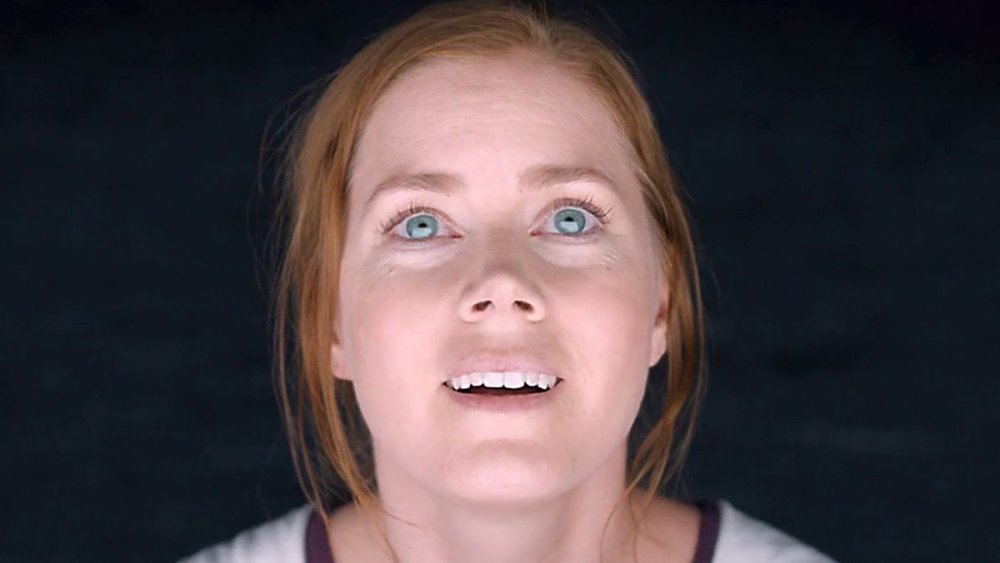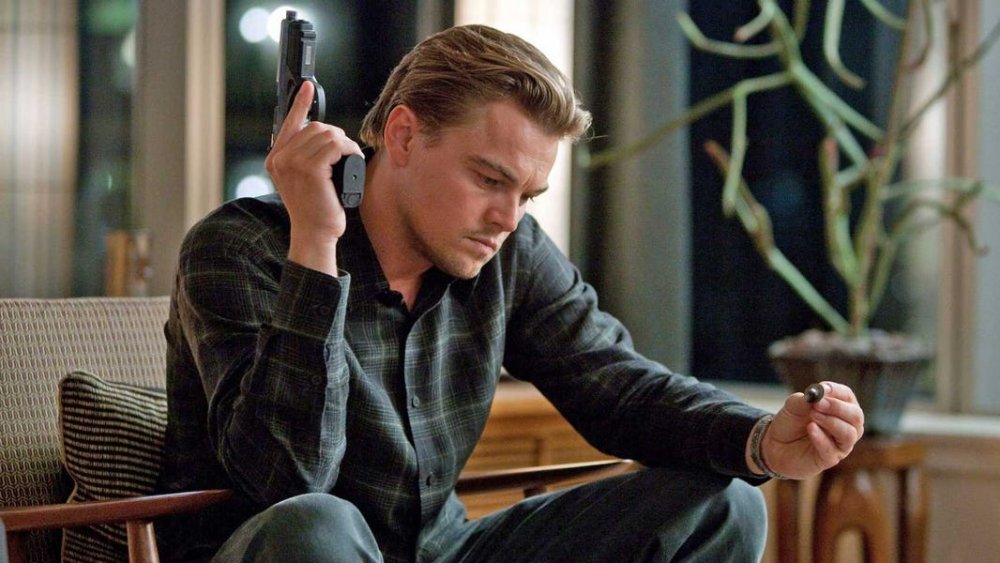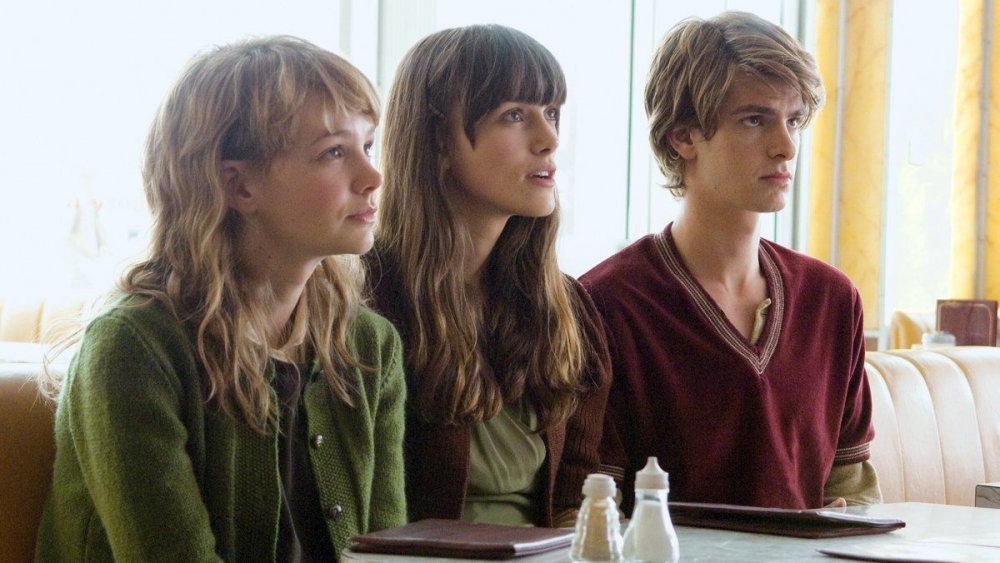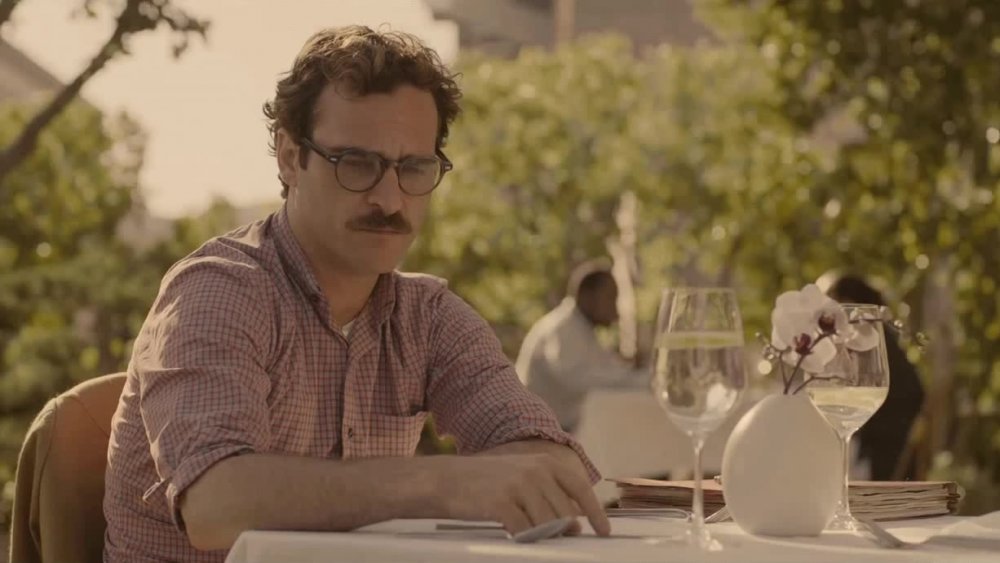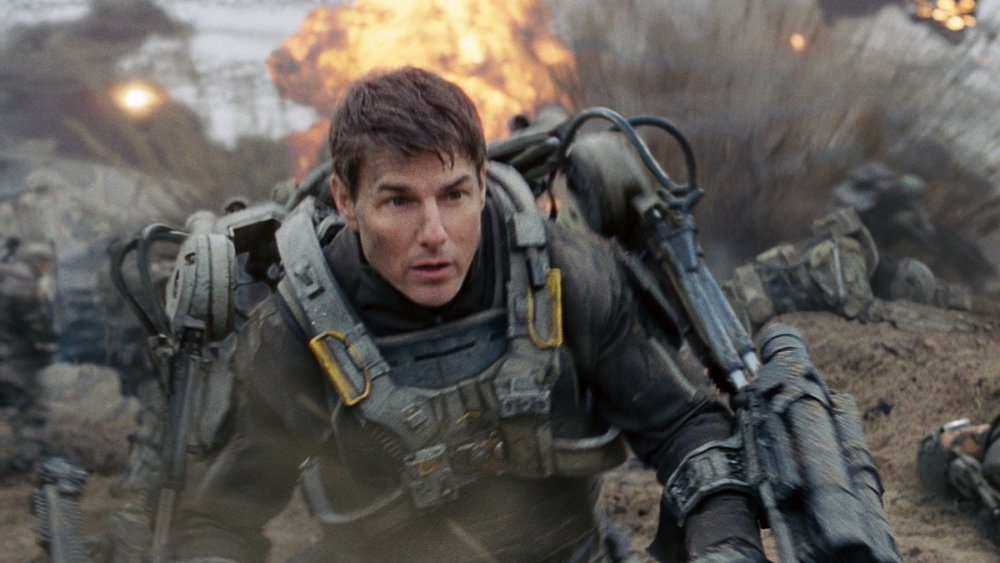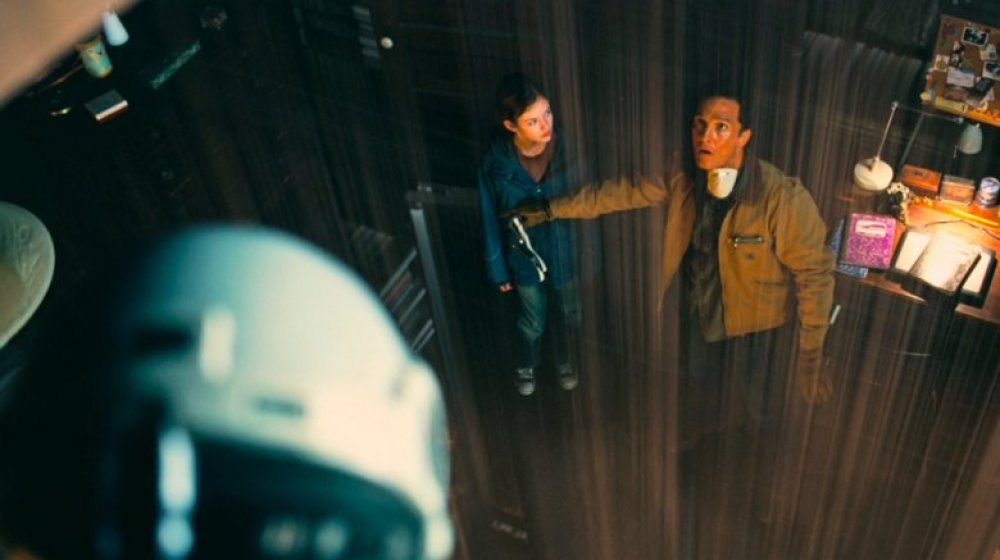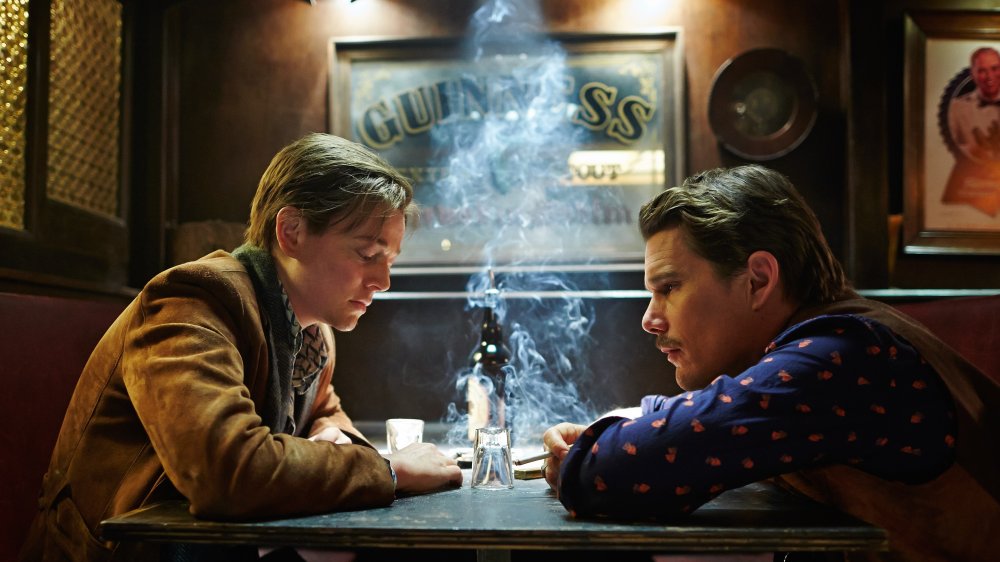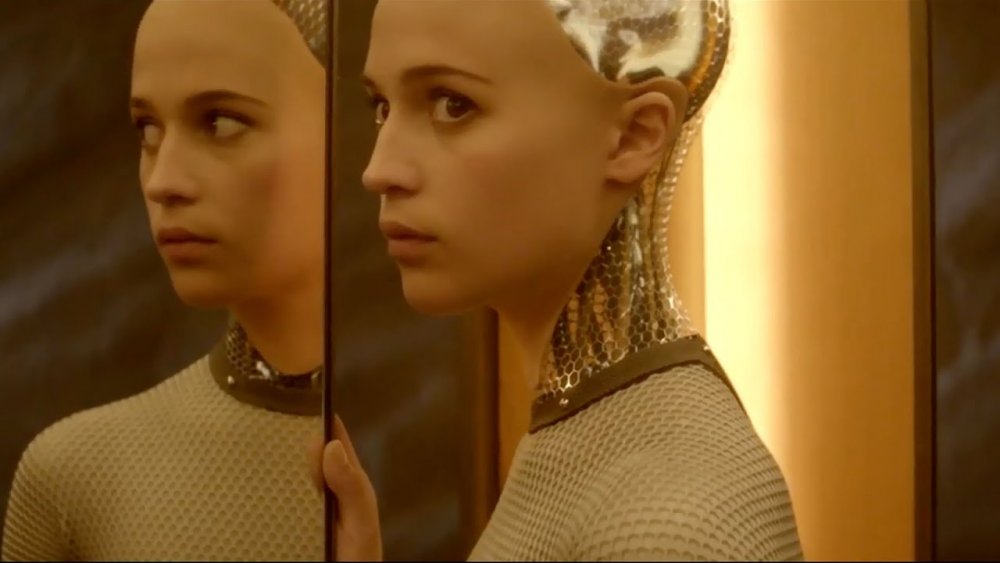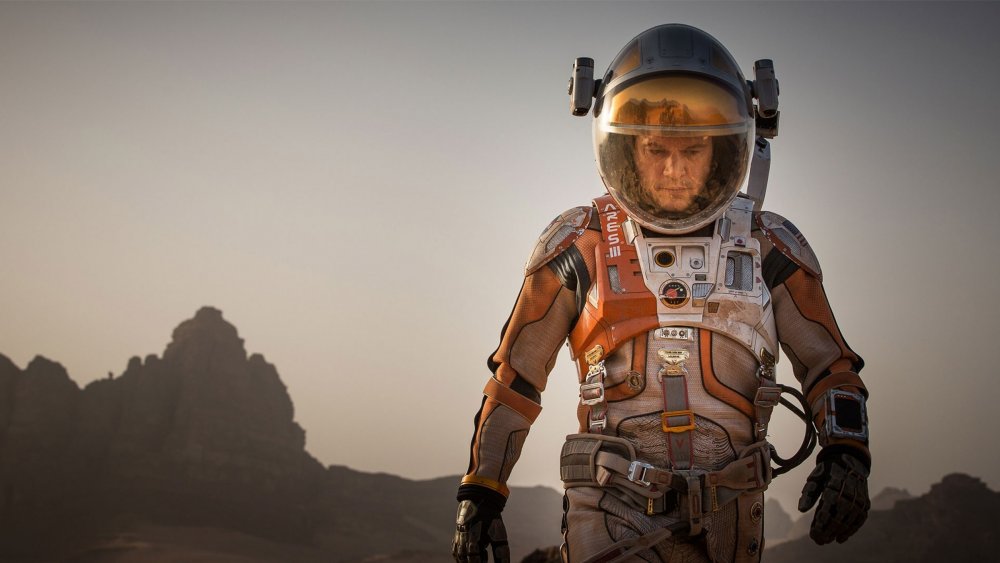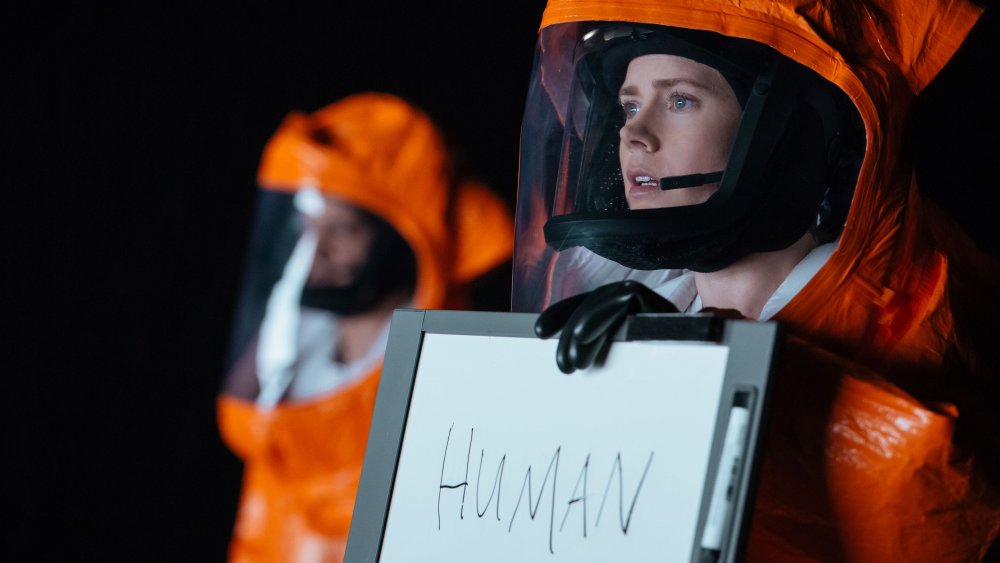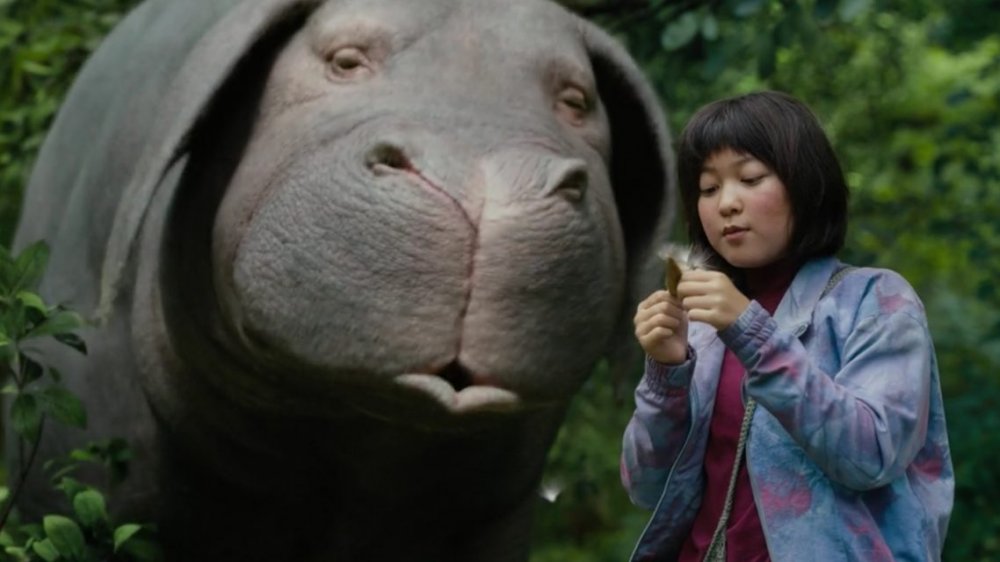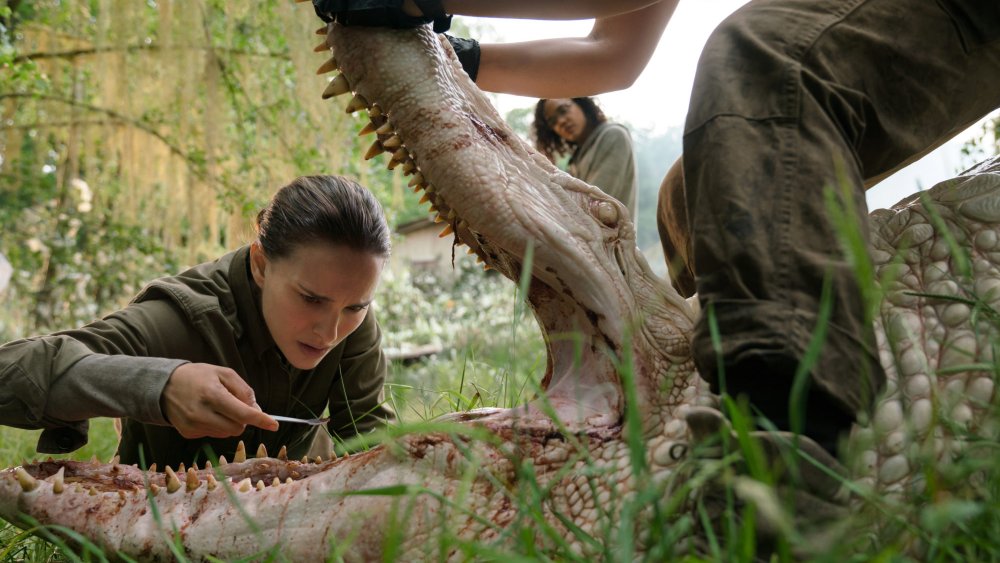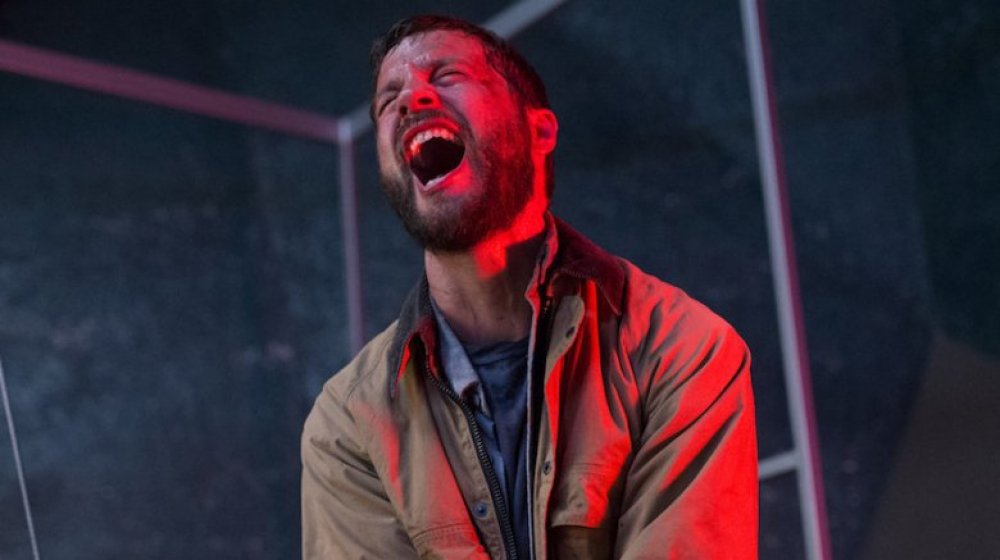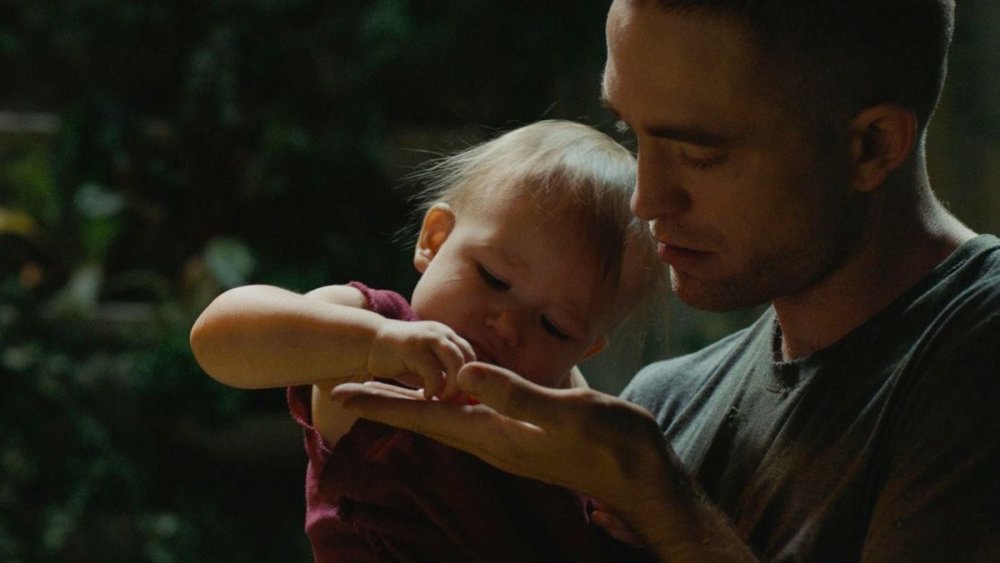The Best Sci-Fi Movies Of The Last Decade
Science fiction has long been a genre dedicated to asking hard questions that push the boundaries of our imaginations, and the past ten years have given us a wealth of sci-fi films that thrill us, challenge us, and ask us to consider worlds beyond our own. From major blockbusters to quiet under-the-radar indie films, the 2010s have been more than generous when it comes to incredible sci-fi fare, some of which you may already have memorized, and others that you may not have even heard of, and below, we're rounding up a few of our favorites.
Before we get started, though, we should say that science fiction can look like just about anything. All that's required for a movie to count as sci-fi is that it centers around futuristic technology or scientific advances. As a result, there have been a number of amazing films in recent years that tangentially fit the bill, from Spider-Man: Into the Spider-Verse to Avengers: Endgame to even Mad Max: Fury Road. However, for the purposes of this list, we're going to rule out films that slot better into a related genre, such as superhero flicks or post-apocalyptic movies, and we're going to focus on films that would be described at first glance as sci-fi, and not just upon closer inspection.
Inception dares us to determine what's real
You may have trouble discerning dreams from reality after watching Christopher Nolan's mind-bending masterpiece Inception, which follows a group of "extractors" who steal important information out of the dreaming subconscious of their targets. The film centers around Cobb (Leonardo DiCaprio), an extractor who was forced to flee the United States after his wife — thinking they were both trapped in a dream and attempting to "wake him up" with her by committing suicide — framed him for her death. After being promised that he can return home to his children if he takes on a risky job, Cobb pulls together his team for their most dangerous mission yet.
The technology that allows Cobb and his elite team to enter the dreams of others is never really explained. It involves some kind of drug cocktail, which is administered intravenously, but that's all we ever learn. Inception is far more interested in the implications of a world in which people can walk in and out of each other's dreams at will and the psychological toll of blurring the lines between dreams and reality. Nolan does an unsettling and convincing job of capturing what it feels like to dream, and the film becomes increasingly more urgent and thrilling as the characters descend into deeper dream states. By the time Inception ends, we wouldn't blame you if you need to pinch yourself a few times to make sure you're still real.
Never Let Me Go is a sci-fi movie that poses hard questions about humanity
Not all science fiction is about flashy tech and aliens. Sometimes, such as in the quiet British drama Never Let Me Go, the scientific advancement is so subtle that it takes a while to even notice it's there. Never Let Me Go follows three friends — Kathy (Carey Mulligan), Ruth (Kiera Knightley), and Tommy (Andrew Garfield) — who were raised together in a boarding school called Hailsham. Over the course of the first act of the film, it becomes clear that the students of Hailsham are actually clones, and they're being raised for the sole purpose of becoming organ donors once they reach adulthood. Once their donations start, they'll be forced to give away parts of their bodies to strangers until they eventually "complete." (Clones don't get the dignity of dying.)
But even though Ruth, Kathy, and Tommy know what they were created to do, that doesn't stop them from experiencing the gamut of human emotion and wanting full lives for themselves. Never Let Me Go focuses on the three characters' relationships with one another, as well as their quests to overcome the system by proving that they are, in fact, human. It's a bittersweet and thought-provoking film, prompting difficult questions about humanity, mortality, and the lengths to which we're willing to go in pursuit of a long life.
Joaquin Phoenix falls hard for his computer in Her
As artificial intelligence technology continues to advance and digital assistants increasingly become the norm, Spike Jonze's film about a man who falls in love with his operating system is seeming more and more relevant. The world that Joaquin Phoenix's Theodore inhabits in Her is one in which society has already embraced artificial stand-ins for people. For example, Theodore's day job is writing letters for strangers who, for whatever reason, want to send their loved ones heartfelt correspondence but don't want to actually pen their missives themselves. All day every day, Theodore pretends to be someone he isn't, imagining strong feelings for people he's never met. So it's not much of a leap when Theodore finds himself developing strong feelings for his OS, who names itself Samantha and speaks to him in an intimate and disarming way via the voice of Scarlett Johansson.
The big question of Her — and one which is left up to the audience to decide — is, of course, whether Samantha actually reciprocates Theodore's feelings, or whether she's merely programmed to give the user exactly what they want. In the case of Theodore, that's a romantic companion. In the case of Amy Adams' character (also named Amy), it's a best friend. There's lots to unpack in Theodore's "relationship" with Samantha, and the film doesn't provide a lot of answers. Instead, it's content to merely ask question upon question for the audience to chew on long after the film is over.
Edge of Tomorrow traps Tom Cruise in a deadly loop
Despite being named for a film that was first released in the '90s, the "Groundhog Day loop" — in which a character gets caught in a period of time that repeats over and over again — has been a recurring trope in films for many decades beyond that. In Edge of Tomorrow, the Groundhog Day loop gets a sci-fi twist, as hapless soldier William Cage (Tom Cruise) finds himself trapped in a time loop where he continually dies in a battle against invading alien "Mimics," then wakes up again on the morning of his death (hence the alternate title of Live, Die, Repeat).
Edge of Tomorrow delivers hefty doses of both action and humor as Cage partners with Rita Vrataski (Emily Blunt), the only other person who's experienced this sort of Mimic-induced loop, in order to figure out how to defeat the aliens once and for all and break the time-traveling cycle in the process. Unlike Groundhog Day, the loop in Edge of Tomorrow is eventually explained, although the reasoning behind it is based more in space magic than science. However, aliens and time travel have long been cornerstones of sci-fi, and as Cage and Vrataski figure out how to use his tumbles through time to their advantage, we get a lot to mull over about extraterrestrial life, cause and effect, and what we would do if we were eternally stuck in the worst day of our lives.
Matthew McConaughey discovers a new dimension in Interstellar
The Earth is doomed at the beginning of Christopher Nolan's space epic Interstellar, and NASA pilot Joseph Cooper (Matthew McConaughey) is forced with an impossible decision — stay on his farm and raise his children on a dying planet, or leave them forever in the hopes of finding a new home for humanity. Obviously, given the space-centric setting of most of the film, Cooper chooses to leave, much to the dismay of his precocious daughter, Murph (played by Mackenzie Foy as a child and by Jessica Chastain as an adult). He's accompanied on his voyage by scientist Amelia Brand (Anne Hathaway), and what ensues is a galaxy-spanning, time-bending adventure involving wormholes, relativity, and alternate dimensions, as both Cooper and Murph work from opposite ends of the universe to try to ensure humanity's ultimate survival.
While science fiction can often adopt a bleak, we're-all-doomed sort of outlook, Interstellar bucks our expectations by leaning into determined, defiant optimism. Even as Cooper and Brand hit one setback after another during their intergalactic travels and Murph repeatedly runs up against impenetrable roadblocks back on Earth, the film as a whole holds tight to the ideals of hope and love against all logic. Interstellar's ending will surely wind up being too sentimental for some, but for everyone else, this sci-fi film is a stunning and surprisingly tender look at what binds us together and the power of the human spirit.
Predestination is a sci-fi movie that challenges our notions of fate
If you're a fan of time travel stories that wreak havoc on our understanding of cause, effect, and free will, look no further than the Australian thriller Predestination, which follows a "temporal agent" played by Ethan Hawke across multiple time periods in his attempt to stop a terrorist dubbed the "Fizzle Bomber" from committing a catastrophic act that will kill thousands. Also starring Sarah Snook and Noah Taylor, Predestination is completely uninterested in holding its audience's hand, trusting us to pick up the subtle pieces of its nonlinear tale that it scatters like breadcrumbs throughout its intriguing, challenging narrative.
Likewise, Predestination never makes any effort to explain the origins of the violin case-disguised time traveling devices the agents use or the Temporal Agency itself. We don't know when or where they came from, nor do we care. The mechanics that enable Predestination's intricately twisting plot don't seem all that important once the film truly hits its stride. By then, we're so caught up in the uniquely Jeremy Bearimy story being woven by the film's central characters that little else matters, and fans will be left mulling over the film's themes of identity and fate long after the film reaches its gutting, mind-blowing conclusion.
Ex Machina is a Turing test for us all
Some sci-fi films are explosive roller coasters, while others are tense slow burns. Alex Garland's Ex Machina definitely falls into the latter category, following mild-mannered computer programmer Caleb (Domhnall Gleeson) as he wins a visit to the isolated estate of his company's eccentric CEO, Nathan (Oscar Isaac). Once there, Nathan reveals to Caleb that he wants him to conduct a Turing test — a test in which a human evaluates whether a machine's behavior is convincingly human — on a robot named Ava (Alicia Vikander). At first amused by the novelty of Nathan's intriguing task, Caleb eventually finds himself increasingly drawn to Ava, questioning not only her humanity, but also his own.
The question of whether or not a machine can ever think and feel like a human being is one that's been captivating sci-fi creators and audiences for decades now, but rarely has it been explored with as much haunting depth as in Ex Machina. The small cast, the steadily ramping sense of secrecy and dread, and the intimate, claustrophobic setting work together to keep the audience in a state of perpetual discomfort, which escalates from a barely noticeable twinge at the start of the film to the gut-twisting ending that makes it hard to breathe. And once the dust has settled, you'll be left to wrestle with the same question Caleb has been pondering for the whole film: Is there a way we can ever truly know if a machine can feel, or are Turing tests really just about fooling ourselves?
Matt Damon is stranded far from home in The Martian
The scenario that leads to astronaut Mark Watney (Matt Damon) getting stranded on Mars in Ridley Scott's The Martian feels so plausible, you almost have to remind yourself that this is science fiction and not a dramatized retelling of a real-life, inspirational space story. At the beginning of the film, Watney is part of a team of scientists studying the surface of the red planet, but they're forced to abort their mission when an incoming dust storm threatens to make it impossible for them to leave. In the chaos, Watney is blown away into the storm and left for dead. He then has to figure out how to survive alone on Mars — including figuring out how to make his own food and water — until he can communicate to NASA that he's still alive, and they can mount a rescue mission.
If you loved the scene in Apollo 13 where NASA scientists figure out how to make a square filter fit into a round hole, then The Martian is the movie for you. In practically every sequence, Watney has to rely on his extensive botany and engineering skills to wring another day of survival out of Mars' unforgiving atmosphere, making the whole film feel like a "square peg in a round hole" scenario. Yet there's plenty of humor and heart amidst all the science-speak, as the film splits its time between Watney's video diaries and the dedicated people back on Earth who are working round the clock to bring him home.
Arrival is a sci-fi movie that explores the possibilities of language
While much of science fiction is devoted to the exploration of hypothetical new technologies, in the beautifully contemplative Arrival, a different kind of speculative theory takes center stage when giant tentacled aliens arrive on Earth, and it's up to linguist Louise Baker (Amy Adams) to figure out what they want. As Louise gains a better understanding of the alien language, she begins to notice a shift in how she experiences her own life. The pensive narrative is a thoughtful musing on the Sapir-Whorf hypothesis, which postulates that language shapes our perception of the world.
But Arrival does more than simply ponder linguistic theory, digging into meaty topics ranging from its questioning of the human instinct to destroy the things we don't understand to its exploration of the interwovenness of love and pain. Despite its aliens and space suits, Arrival is a deeply philosophical movie, featuring a stunning performance from Amy Adams and languorous pacing that allows the viewer to truly savor every delicious, challenging question it dishes up.
Okja challenges us to take a closer look at what we eat
Several of the films on this list hide their sci-fi bones under deceptive trappings, and in the case of Bong Joon-ho's Okja, those trappings are the lovable CGI flesh of a six-ton superpig. Okja tells the tale of a young girl named Mija (Ahn Seo-hyun) who's spent most of her life raising a superpig — the genetically engineered creation of the Mirando Corporation — around her home in the mountains of South Korea. For ten years, Mija and Okja have formed a close bond, spending the bulk of each day together and communicating in a way only the two of them can understand. But their peaceful lives are threatened when Mirando comes to collect its prize superpig, intending to ship her to America, photograph her for publicity, and ultimately use her as she was always intended — for food.
Okja is part magical story about the unlikely friendship between a girl and her massive, beloved pet and part cautionary sci-fi horror show about genetic engineering, corporate deception, and the atrocities of the meat production industry. There are plenty of thrills, twists, and heartbreak as Mija does everything in her power to save Okja before she's sent to the slaughterhouse, and while Okja has a clear point of view, the story never gets so bogged down in its message that it forgets to entertain ... although you may find yourself thinking twice the next time you crave a burger.
Natalie Portman leads a bizarrely surreal expedition in Annihilation
It's hard to know how to describe Annihilation, Alex Garland's sophomore directorial effort following Ex Machina, in which he took the bare bones of the novel upon which the film is based, discarded most of the plot, and replaced it with this strange, nightmarish fever dream of a movie. Annihilation follows Natalie Portman's biologist, Lena, who leads a team of scientists (including Tessa Thompson, Gina Rodriguez, and Jennifer Jason Leigh) into an unexplained, rainbow-hued anomaly known as "the Shimmer" following the disappearance of an earlier team that included her husband (Oscar Isaac). Inside the Shimmer, Lena's team encounters all sorts of bizarre, beautiful, and increasingly unsettling phenomena, including both plants and animals behaving in unearthly ways.
Complicating matters is their realization that the Shimmer is affecting their memories. In fact, it may even be chipping away at their sanity as they search for answers about the previous team and the Shimmer itself. Annihilation isn't overly concerned with delivering those answers, and it's much more interested in serving up question after question, all revolving around its central themes of change and destruction. Where it all leads is somewhat in the eye of the beholder, with a dizzying, disconcerting climax that can be interpreted in any number of different ways. Without a doubt, Annihilation's ending is sure to leave your mind buzzing long after the movie ends.
A man gets technologically enhanced in Upgrade
Science fiction doesn't always have to be relentlessly cerebral or complex to be effective. Sometimes, just a touch of scientific speculation is all that's needed to elevate a familiar premise to something fresh and exciting. Upgrade follows mechanic Grey Trace (Logan Marshall-Green) as he seeks both revenge and answers after he and his wife are attacked one night. His wife is killed, while Grey is shot and left a quadriplegic. However, Grey's friend offers him a technological implant called STEM that will not only restore his ability to walk, but it will make him capable of accomplishing tasks he could never have dreamed of doing before. After Grey has been "upgraded," he realizes that his new implant comes with its own artificial intelligence operating system, which can help him in his quest for vengeance, but it involves Grey giving complete control of his body to STEM, which takes him down a dangerous road.
Although the basic revenge premise of Upgrade bears a lot of similarity to other action-heavy, revenge movies, STEM adds a fascinating layer to both the plot and the action. The hypnotic choreography during the brutal Grey-controlled-by-STEM fight scenes is unlike anything we've ever seen, as Marshall-Green moves his body like a puppet whose strings are being pulled by an unfeeling master. Plus, the complex ethical and technological questions that arise as Grey cedes more and more control of his actions to STEM are enough to satisfy even the most avid sci-fi fans.
High Life is one of the decade's most human sci-fi movies
Black holes have long been a subject of fascination for sci-fi creators, but Claire Denis' patient, challenging film High Life offers a new take on the subject as the movie follows a group of death row inmates into space on a mission to find a source of alternative energy. The character at the center of High Life is Robert Pattinson's Monte, and the narrative unfolds non-linearly, opening with Monte nearly alone aboard the ship following the deaths of the entire crew, and then jumping back and forth in time to explain what happened to them and what Monte does following their deaths.
The only other person to survive alongside Monte is his daughter, Willow, whom we see him raising from infancy throughout the film. Monte's sweet, gentle moments with Willow provide a jarring contrast to his flashbacks of the interactions between the crew, and Denis uses the confined space setting and the confounding, often contradictory nature of the characters to effectively underscore the core complexity of humanity. No one on the ship is just one thing, and they're all struggling to define their lives and find meaning in some way. As the film cuts from tender interactions between Monte and his baby girl, to his tense, often brutal encounters with the members of the crew, High Life offers a meditation on life and death, good and evil, hope and hopelessness, humanity and our more animalistic instincts, and the multitudes of possibilities present within us all.
